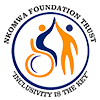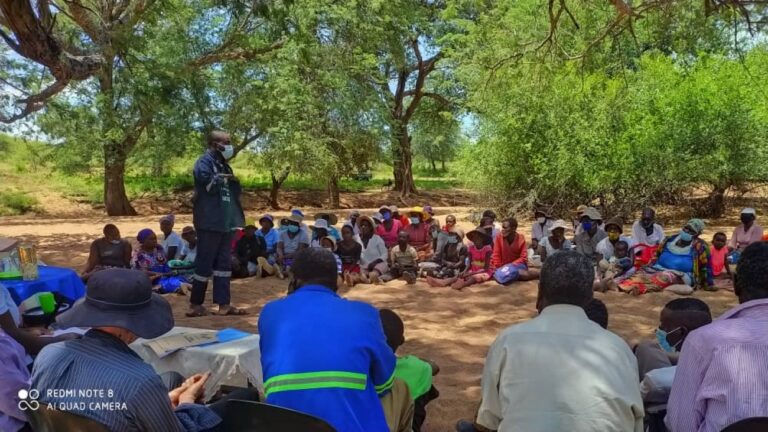Nkomwa’s ZOOM Labour laws Seminar
May 14, 2022
Choice News Africa
Gwanda -The role of employment to social protection is indisputable. This is so particularly in Southern Africa where poverty and economic distress together with governance and other challenges make the provision of social assistance a pipe dream to the majority of the citizenry.

This leaves social insurance as the dominant form of social security in Africa, with those in formal employment standing to benefit more than the unemployed majority who ache a living from invisible means. Inevitably, such a scenario triggers stiff competition for the few jobs most African economies are able to provide.
This has dire repercussions for persons with disabilities who must not only contend with both what their impairment brings to bear in an ablest society but have also to struggle to convince employers and governments that they are capable and deserve space on the labour market.

Disability: According to the UN Convention on the Rights of Persons with Disabilities (UNCRP), disability is an evolving concept which results from the interaction between persons with impairments and attitudinal and environmental barriers. It recognizes persons with disabilities as those persons who have long-term physical, mental, intellectual or sensory impairments which in interaction with various barriers may hinder their full participation in society on an equal basis with others.
PWDs-Include those who have long-term physical, mental, intellectual or sensory impairments, which in interaction with various barriers may hinder their full and effective participation in society on an equal basis with others. Persons with Epilepsy and Albinism are included in this group (National Disability Policy, June 2021).
In terms of Zimbabwe labour law, a “person with disability” is defined under section 2 of the Disabled Person Act, Cap 17:01 as a person with a physical, mental or sensory disability, including a visual, hearing or speech functional disability, which leads to physical, cultural or social barriers inhibiting him/her from participating at an equal level with other members of society in activeness, undertakings or fields of employment that are open to other members of society. Section 9 of the Act, prohibits discrimination against persons with disabilities in employment.
What challenges do disabled persons face in the job market?
Most people with disabilities in Zimbabwe are not accorded equal access to job opportunities. According to study by the National Association of Societies for the Care of the Handicapped (NASCOH), only two percent of people with disabilities are employed in the public sector, and overall less than seven percent of people with disabilities in Zimbabwe are in employment. A further eight percent are self-employed, while 29 percent are involved in farming activities for sustenance. Nineteen percent are said to be studying.
Why is the employment of persons with disabilities a challenge in Zimbabwe?
The high rate of unemployment among people with disabilities in Zimbabwe is due mainly to their lack of qualifications and discrimination from employers. Lack of qualifications often result when people with disabilities, especially females, are denied access to school. Those who do attend school do often not receive informed career guidance, and are not aware of appropriate career opportunities.
Why do employers discriminate against persons with disabilities?
Employers perceive employing persons with disabilities as costly and are thus reluctant to employ them. In general employers do not take measures to facilitate a working environment appropriate for people with disabilities – such as wheelchair-friendly spaces, for example – as this will cost them.
How do employers discriminate against people with disabilities?
Through lack of awareness among employers about appropriate environments for people with disabilities. As a result, most workplaces in Zimbabwe are inaccessible to people with disabilities. For example, they lack ramps, wide doors and hallways for those that are wheelchair bound. Many escalators in buildings do not work. Office setups are not structured in ways that accommodate people with disabilities. As another example – appropriate equipment is lacking such as basic software that is required if people with visual impairments are to use computers.
What challenges do persons with disabilities face when they are employed?
They are generally given low grade jobs and are usually looked down upon by their employers as they think they cannot cope with the tasks at hand. The PWDS also have to contend with discrimination and verbal abuse from their colleagues. There is a strong stigma attached to disability and some able-bodied people superstitiously believe that they can be “contaminated” by the PWDS. This also complicates work relations when it comes to information sharing and communication with colleagues, for example between people with visual or hearing impairments.
It is against this background that the Nkomwa Foundation Trust in collaboration with Labour Association of Zimbabwe will be holding a zoom seminar on the 19th of May 2022. The seminar title: Labour Law Rights for Persons of Zimbabwe which will be facilitated by renowned Labour Lawyer in Zimbabwe Advocate Caleb Mucheche.
The NFT invites industry captains, HR practitioners, Training officers in public and private institutions, PWDs, leaders of organisations for persons with disabilities (OPDs) and the CEOs of organisations to this remarkable event. Diversity management is for all and with the leaving no one behind mantra-lets converge, discuss and share ideas on equal basis. Zimbabwe’s labour market will not be the same after this event.
I urge all members of the public to keep checking on our social media platforms for the link for the meeting: Twitter: @NkomwaTrust, FB page: Nkomwa Foundation Trust, FB account: Nkomwa Trust.

